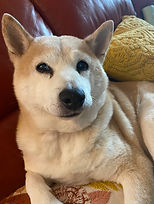
research.
building cancer genomes in the lab.
We use the principles of systems genetics applied to tumor copy number landscapes to dissect the driving forces behind tissue-specific tumor aneuploidy patterns.
What's the best way to study a large chromosomal aberration like an arm-level amplification to understand it's role in cancer? Make it in the lab and compare to isogenic diploid cells!
So that's exactly what we do, using classical forward genetic dogma to get us there! By screening libraries of aneuploid mutants derived from normal diploid epithelial cells for fitness, then evolving many different clonal lineages in vitro, we obtain the same kinds of chromosomal aberrations observed in cancer (remarkably even at similar frequencies seen in patients!).
Oh, and it's tissue-specific: mammary epithelial cells in our system select breast cancer chromosomal abnormalities, while renal cells select renal cancer chromosome profiles.
o
We use these lab-grown tumor-like genomes (which are not complicated by other background mutations) in comparative genomic & transcriptomic analysis with human tumors to generate hypotheses about the functions (and more generally the 'phenotypes') of the most frequent tumor-associated chromosomal abnormalities like +1q and +8q.
The ultimate goal is to utilize this deep phenotypic profiling to target chromosomal aberrations therapeutically.

Figure: Genomes of aneuploid human mammary epithelial cell clones undergoing selection in vitro over 40 population doublings
rare cancer fusion oncogene network.
Sometimes chromosomal translocations formed from intragenic breaks generate potent fusion oncogenes.
Interestingly, many rare cancers are characterized by recurrence of specific fusion oncogenes. Sometimes partner choice is strict; almost every case will have the same fusion between the same two genes. Other rare cancer types display strict choice of only one gene and promiscuous choice of its fusion partner. Yet others "mix and match" partners from within a looser network of genes (which usually are functionally or structurally related).
What drives these specific fusion/disease interactions? An "oncogenic gatekeeper" model would propose that these fusions are pro-tumorigenic events only in certain cell types. A "location opportunity" model would propose that breakpoints and fusions are more frequently generated in certain cell types (due possibly to levels of transcription, replication timing, 3D-organization, etc) leading to opportunity for their selection during tumorigenic transformation.
To begin to answer the tissue-specificity question of fusion oncogene function in rare cancers, we have generated a rare cancer fusion oncogene ORF (open reading frame) library.

Figure: A comprehensive Rare Cancer Fusion Oncogene Network. Nodes indicate genes, edges indicate fusions, colors indicate disease sites of origin.

people.
.jpg)
Emma V. Watson, PhD
Assistant Professor
Emma received her B.S. in Biophysics from UConn and her Ph.D. in Biomedical Sciences from UMass Chan Medical School. She was a Damon Runyon Postdoctoral Fellow (Suzanne and Bob Wright Fellowship) in Stephen J. Elledge's lab at Harvard Medical School/Brigham and Women’s Hospital, then an Instructor/Associate Geneticist. She re-joined UMass Chan Medical School as an Assistant Professor in 2022 in the Department of Systems Biology .
Emma is interested in utilizing high-throughput genetic screens to study chromosomal aberrations in tumorigenesis.
She did not star in any of the Harry Potter franchise films.

Abdulrazak Frederick
Research Associate II
Abdulrazak received his B.S in Biotechnology from Worcester State University in 2022. His interests include tissue culture and cell biology.
Outside of the lab he enjoys soccer (favorite team: Tottenham Hotspurs), book writing, and beating his brothers in Mario Kart. He loves to travel and can speak a bit of French and Arabic (Moroccan) and is learning Japanese.

Arshia Kaur
PhD Candidate
Arshia graduated from UMass Amherst in 2022 with a degree in microbiology. She is working on the Rare Cancer Fusion Oncogene Library and is interested in developing a broader understanding of the role fusion oncogenes play in the pathogenesis of rare cancers.
Outside the lab, Arshia enjoys hanging out with friends, crochet, and reality tv.

*
Faith Keller, Sc.M.
PhD Candidate
Faith received her B.S. in Biochemistry from Clemson University in 2019 and her Sc.M. in Biotechnology from Brown University in 2022.
She is interested in using cutting-edge genomics to study chromosomal instability in various tissues.
Faith spends her time outside the lab with her dog Riley, and enjoys knitting/crocheting.
*Riley

Sumaira Perez
PhD Student, co-mentored with Jolanda Van Leeuwen
more info coming soon!

Aileen Peddie
Research Associate I
Aileen recently graduated from Worcester Polytechnic Institute in 2025 with a B.S. in Biochemistry. She is interested in using functional genetics to explore the relationship between copy number alterations and oncogenes in different tissue types.
Outside of lab, Aileen enjoys hiking, crocheting, reading, and trying new restaurants with friends.
Alumni

Rayna Magesh, M.S.
Research Associate II 2022-2025
Current position: M.D. student at Boston University Chobanian & Avedisian School of Medicine

Lilah Delbou
Summer Research Intern 2023-2024
Current position: M.S. student at Worcester Polytechnic Institute
Affiliate Lab Members
_JPG.jpg)
Beni Beanbags
Dog in Residence
Resident therapy dog/crypto advisor/snacko taster
16 year old Shiba Inu. Won't help with your experiments. Will help with your lunch. Very good boy.
_JPG.jpg)
Meowey Lewis
Cat in Residence
Resident mouse-killer/inter-dimensional traveler/will judge you.
Agent of entropy. Will "help" with unpacking, loves cardboard boxes.
Official Lab Portrait
.jpg)
Family Photo: L to R: Arshia Kaur (GSBS student), Abdulrazak Frederick, Emma Watson, Faith Keller (GSBS student), and Rayna Magesh.
February 2023


Pokemon knitwork
Faith Keller
Pokemon artwork
Abdulrazak Frederick


Baking artworks
Rayna Magesh

"Iris"
Illumina NextSeq 2000
Chromy!
Unofficial Watson Lab Mascot
Creator: Faith Keller

Our lovely view from lab.
Ski trip !

Ski trip To Wachusett Mountain
Watson, Lee, Pitarresi, and Ruscetti Labs
February 2023




The Great Blueberry Bake-Off


Farm to Lab
We picked the blueberries ourselves from a local farm and each baked an item!
Rayna won the Bake-Off with her blueberry pie (notice the design?),
which was no surprise to anyone.
July 2023

Summer Ice Cream Adventure
2024!

Updated photo with our summer intern Lilah Delbou from WPI!

So much science going on!





